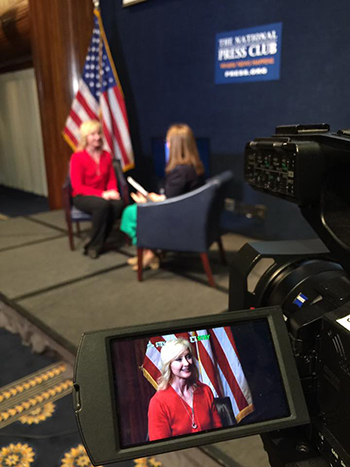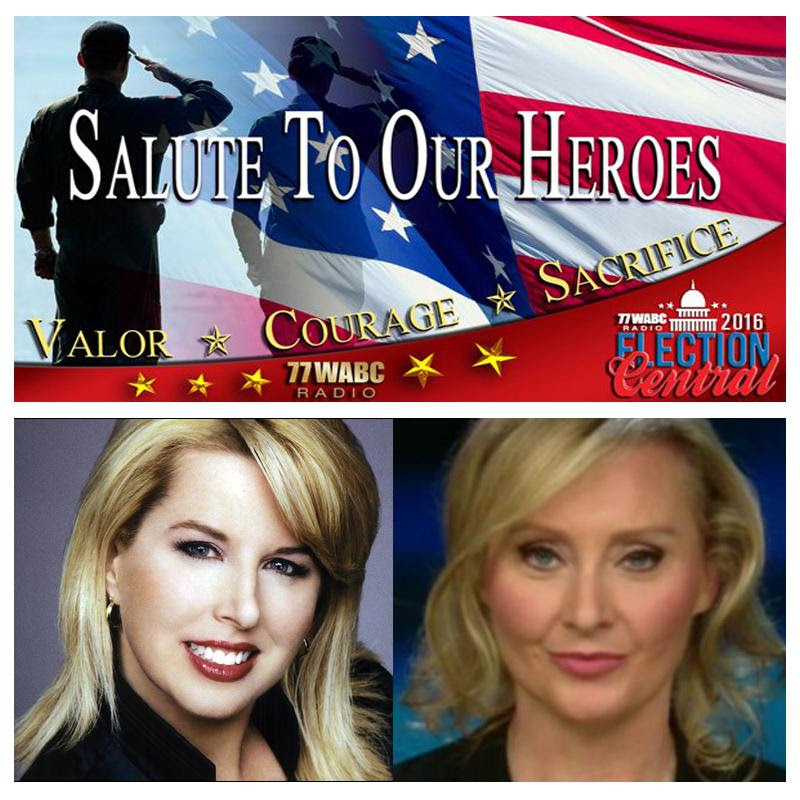By Alex Quade (Tampa, Florida) – The next four-star general to run U.S. Special Operations Command (SOCOM), if confirmed by the Senate, will be Lt.Gen. Joseph Votel, who currently runs the über secret Joint Special Operations Command (JSOC). The Tier-1 elements Votel currently commands include elite units such as Delta Force and SEAL Team 6 – which have been in the news recently for missions such as the POW Bowe Bergdahl rescue, and the capture of one of the suspected ringleaders of the Benghazi attack. Votel will take over command of SOCOM from Adm. William McRaven, who also ran JSOC before SOCOM, and was in charge of the capture-or-kill Osama bin Laden mission.
Lt.Gen. Votel stays out of the press and is rarely quoted. At a special operations industry conference in Tampa recently, I asked questions of all the combatant commanders. Here’s some of what Votel had to say, which gives big clues to what kind of SOCOM Commander he’ll be. He explained his priorities for both SOCOM and JSOC, straight-up.
As the U.S. moves to a different posture in Afghanistan, and finds itself involved in other areas around the globe, Votel said, the challenge before SOCOM and JSOC is, “how do we take that great methodology we refined over the last 12 or 13 years, and apply it to areas outside of declared theaters of active armed conflict?”
That targeting methodology Votel described as a: “kind of ‘find, fix, finish, exploit, analyze process; a way of looking at a problem and applying resources against it to come up with solutions. Then us those solutions and what comes out of that — those particular operations — to kind of continue to drive operational tempo that allows us to achieve the desired end state.”
To that end, Votel highlighted three key focus areas for technology which the special operations commands believe to be very important.
“First and foremost,I think is maintaining the situational awareness, resolution and reach, and access that’s been provided by the resources that we’ve been using here for the last 12 or 13 years, in places where we do have large bases; where we do have solid infrastructure. But being able to maintain that level of situational awareness in areas that don’t, aren’t necessarily characterized by all those aspects, is a key piece for us.”
Votel said, precision, accuracy and minimizing collateral damage becomes even more important when the U.S. is operating in areas outside of declared combat zones.
“Second of all, we have to continue to recognize, it’s a focus area, to continue to improve our finish capability – whether it’s a lethal finish, or whether it’s a non-lethal finish, or whether it’s enabling someone else – to be as precise as we possibly can. Minimizing collateral damage and the impacts on the surrounding environment. Certainly that is always a very, very important aspect for us, whether we’re operating in Afghanistan or anyplace else,” Votel said.
Votel’s third area of concern covered the detection and neutralization of chemical, biological, radiological & nuclear threats to U.S. interests or safety.
“This will continue to be an area we will want to pay a lot of attention to. We will only have very limited opportunities to get that right, when the situation is presented to us,” Votel said.
He clarified, that it’s the old stockpiles of these types of weapons still out there around the world — concern about their safeguard, and falling into hands of people who have no problem employing them.
“(The) Nightmare is them falling into the hands of Sunni extremists or other extremist ideologists who have no problem using them,” Votel said.
He noted there is some good technology out there already, which his special operators are currently using. “But I think, as we see, we do see violent extremist organizations and others continue to exert a desire to acquire these types of weapons. So our ability to detect and neutralize them effectively will be a key piece for our country,” Votel said.
Votel brought up a couple other specific areas of interest on the technology and industry side, including longer range, better fidelity tactical sensors.
“Certainly we benefit from our aerial platforms out there, but in some cases we will not be able to operate aerial platforms, because the host nation will not allow us to do that. So we’ve got to continue look at long range, high fidelity, tactical sensors that allow us to see and understand what is happening,” Votel said.
Operating in areas outside of declared theaters of active armed conflict also means special operations forces must try to minimize and lower their visibility, or “footprint.”
“Signature reduction: Things that can reduce the individual vehicle or vessel’s signature or profiles will always be very, very important to us,” Votel said.
Finally, Votel said, non-lethal means to stop vessels or vehicles are always things his special operators around the globe are looking for, because they give them more options to work with.
“(Non-lethal weapons) give us great options on how to solve problems, get control of situations; so we always want to look at areas like that, and how we can do that better,” Votel said.





